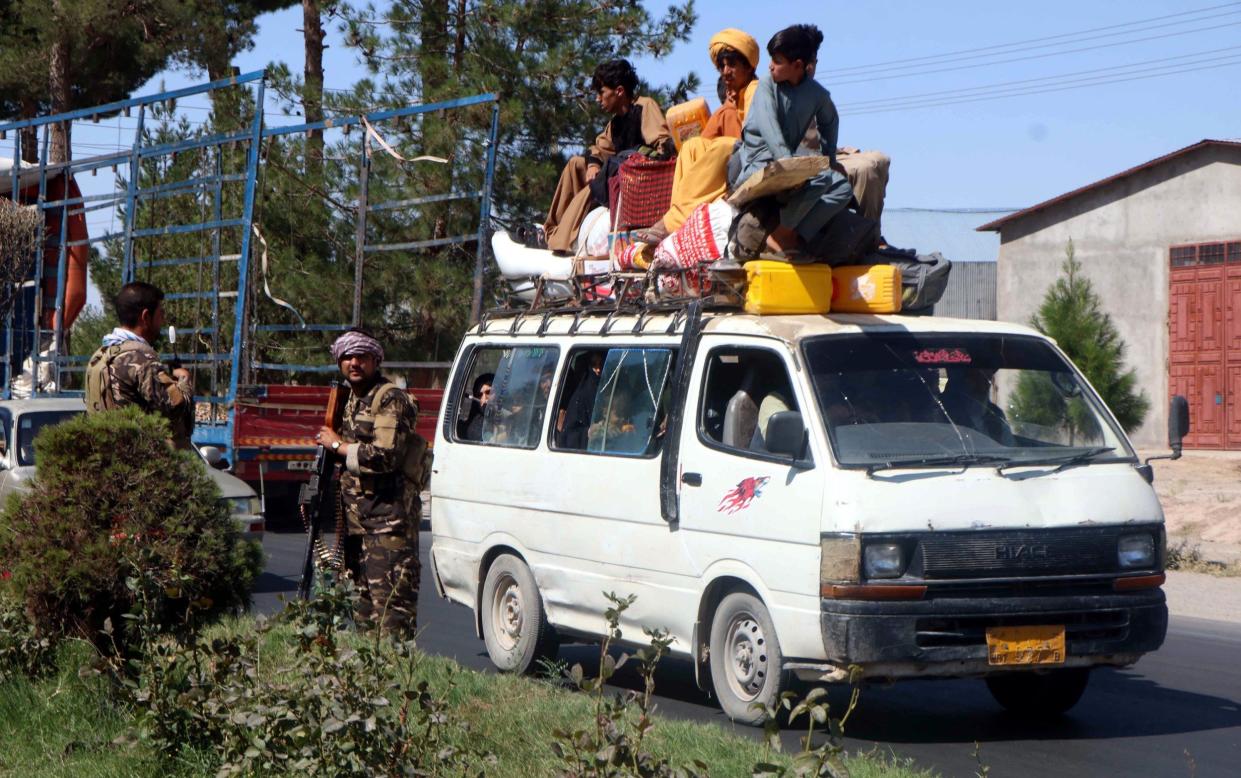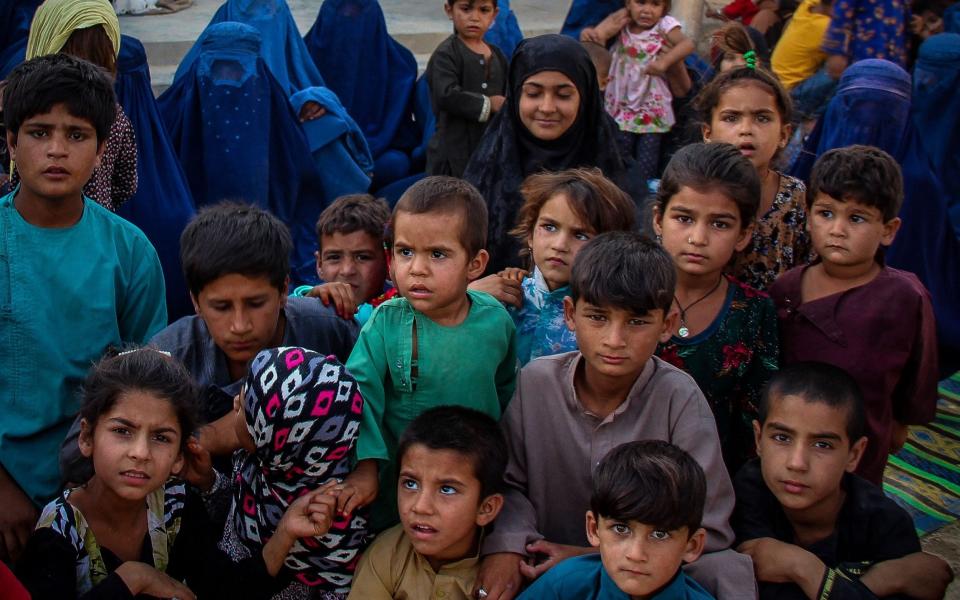Taliban going door to door to hunt down Afghan interpreters

A former Afghan interpreter who worked with British forces told The Telegraph he was “stuck in Lashkar Gah” as government forces urged residents to evacuate the city amid heavy fighting.
“Kids are crying from the firing sound,” he said. “The fight is so strong we are scared the Taliban may come to every house finding people who worked for British and American forces.”
The former interpreter, whom The Telegraph has not named on security grounds, begged reporters to “raise our voice and save our lives”.
“We need urgent help to get out from the city or people will be killed here.”
Lashkar Gah, the capital of Helmand Province, is the first major Afghan city that could fall to the Taliban, who have seized scores of districts across the country since the withdrawal of foreign troops in recent months.
Those on the ground have claimed the city has fallen “95 percent” to the militant group, who are accused of targeting individuals who may have had a connection with foreign troops during the 20-year war.
The Telegraph understands that a former Afghan special forces police officer who was trained by British special forces, along with five of his soldiers, were forced to surrender to the Taliban on Sunday.
From there, they went door to door showing the Taliban who worked with foreign forces.
Many fled, however sources claim at least 80 people were taken out of their homes and killed.
Eddie Idress, a former special forces interpreter now living in the UK, said that “those who tried to escape were stopped at Taliban check points” and identified by a former police chief.
Jamal Barak, a former interpreter now living in the UK, said his father was trapped in Lashkar Gah. Having been employed by the UK military as a gardener when the area was under British control, he is now in fear of his life, however because he was not in an exposed role, he is not eligible for the relocation scheme. “The Taliban won’t see it like that,” a source close to Mr Barak said.
Ed Aitken, a former captain and co-founder of the Sulha Alliance, an Afghan interpreters campaign group, said it received dozens of messages every day from terrified former interpreters and locally employed staff who were trapped in Lashkar Gah.
“They have sent us videos of Taliban fighters going from house to house searching for anyone who worked for the British,” Mr Aitken said. “The Taliban are not discriminating between the nuances of employment. Anyone who worked with British forces will be killed mercilessly.”
He warned the UK would risk “blood on their hands” if it failed to “adapt their policies quickly to keep up with the changing situation and make the relocation scheme far more generous”.

Meanwhile, as fighting continued throughout the region, The Telegraph was shown graphic images of a child who had been caught in the crossfire between the Taliban and the Government on Monday.
“The boy fell in the street,” a 34-year-old Afghan based in Kabul told The Telegraph. “It’s a war zone and no one can get him so his dead body is still lying there.”
Tobias Ellwood, the chairman of the defence select committee, said the world was now “witnessing the horrific consequences of our retreat from Afghanistan unfold”.
“For over a decade, the British military have sacrificed manpower and resources to protect the people of Helmand,” he said.
“It is heartbreaking to see that good work so ruthlessly undone as the regional capital, Lashkar Gah, falls to the Taliban.”
Mr Ellwood warned that other cities such as Kandahar and Herat would follow, “until only Kabul will remain Taliban-free but under siege”.
“History will show our failure in Afghanistan will go down as the biggest own goal made by the West so far this century,” he said.

